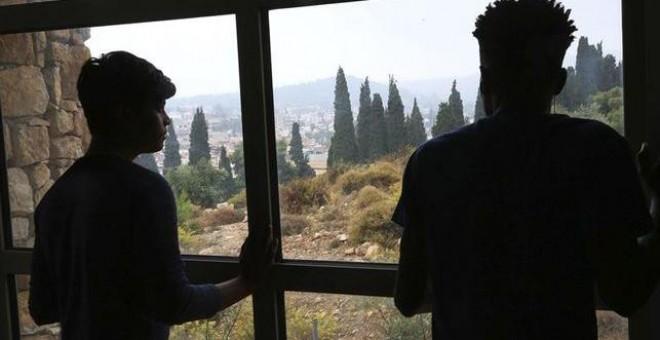The BBC implicates Inditex and Mango suppliers in the irregular employment of Syrian refugees in Turkey
A report by the British BBC network points out that Syrian refugee adults and children, often without the relevant work permits, work in Turkey for factories that supply clothing brands. Among the firms investigated are the British Marks & Spencer and Asos, but brands from the Spanish group Inditex and Mango have also been mentioned.
Inditex's communication office has categorically denied this point: "Syrian refugees in an irregular situation do not work for our suppliers, nor do children," a group spokesperson told RTVE.es. "When we detect that there are refugees in the labor chain, we help them to regularize their situation there," she adds. "We manage it through a local NGO, Refugges Support Centre," says the spokeswoman.
The report, with the title: Undercover: the refugees who make our clothes, will be broadcast this Monday on the journalistic investigative program Panorama, on BBC One. In the case of Inditex, the reporters denounce the presence of Syrian workers in irregular situation at the Goreteks laundry, where they worked 12-hour shifts without the necessary protection.
Reporters discovered that this laundry also processed garments for Mango, but this Spanish company claims that it was subcontracted without their permission by one of its suppliers, according to Efe.
Exhaustive audits, a correction process, and the BBC
The Galician company acknowledges to RTVE.es that the BBC contacted them to ask about the data found by the journalists, but they explain that The recording of the report took place in the middle of the process of correcting other irregularities detected in its inspections, not related to refugees.

"We audit all our factories and carry out inspections throughout the year," they say. "When we detect a problem we impose a correction plan and the provider has six months to execute it."
According to Inditex, in August one of these inspections in Goreteks revealed "a sanitary problem related to the use of elements that are dangerous to health, not to the presence of Syrian minors", explains the spokeswoman. "We detected this before the BBC arrived," she clarifies. Currently, "Goreteks is correcting that process and has until December to resolve it" they underline.
British brands
As for British brands, reports the Efe agency, the BBC discovered seven Syrians, the youngest 15 years old, working 12-hour shifts in the main factory supplying Marks & Spencer (M&S), who had been recruited by an intermediary who paid them in cash just one pound (1.12 euros) an hour, below the Turkish minimum wage.
M&S told the station that its inspections had not identified any Syrian employees, but it has offered "permanent legal employment" to any refugee who has worked in one of its workshops.
"Ethical trade is essential for M&S. All our suppliers are contractually required to comply with our principles," explained a company source, stressing that "no non-compliance will be tolerated and measures will be taken" to avoid them.
In another part of Istanbul, the program found several Syrian children working in a factory where there were samples of clothing from Asos, an online store. A subsequent inspection identified eleven Syrian adults and three under the age of 16, the BBC notes.
Asos has ensured that this factory was not officially authorized but, despite this, the company agrees to finance the schooling of children and pay a salary to adults until they can work legally.
"Panorama" reporters also found several Syrian adults and Turkish children as young as 10 working in another workshop, whose owner claimed they made pajamas for British brand Next. Next has declared to the British public channel that these pajamas are made by another supplier and argues that the piece shown to the program could have been an isolated sample.
Inditex's numbers in Turkey
Inditex states in a statement that in 2015 it carried out more than a thousand audits in that country, where it has a team of "more than 400 people dedicated to controlling" to your suppliers.
The group has 183 suppliers in Turkey, who work with 748 garment factories, and 640 centers that carry out other processes, such as laundries.
In total, there is a workforce of 155,256 people, who are not directly hired by the Spanish firm, although it is responsible for applying its code of ethics and working conditions.
60% of Inditex's production is "proximity", in countries of the European Union, Turkey and Morocco, while the rest is carried out in other parts of the world, such as China, Bangladesh, India or Vietnam .










Related Articles